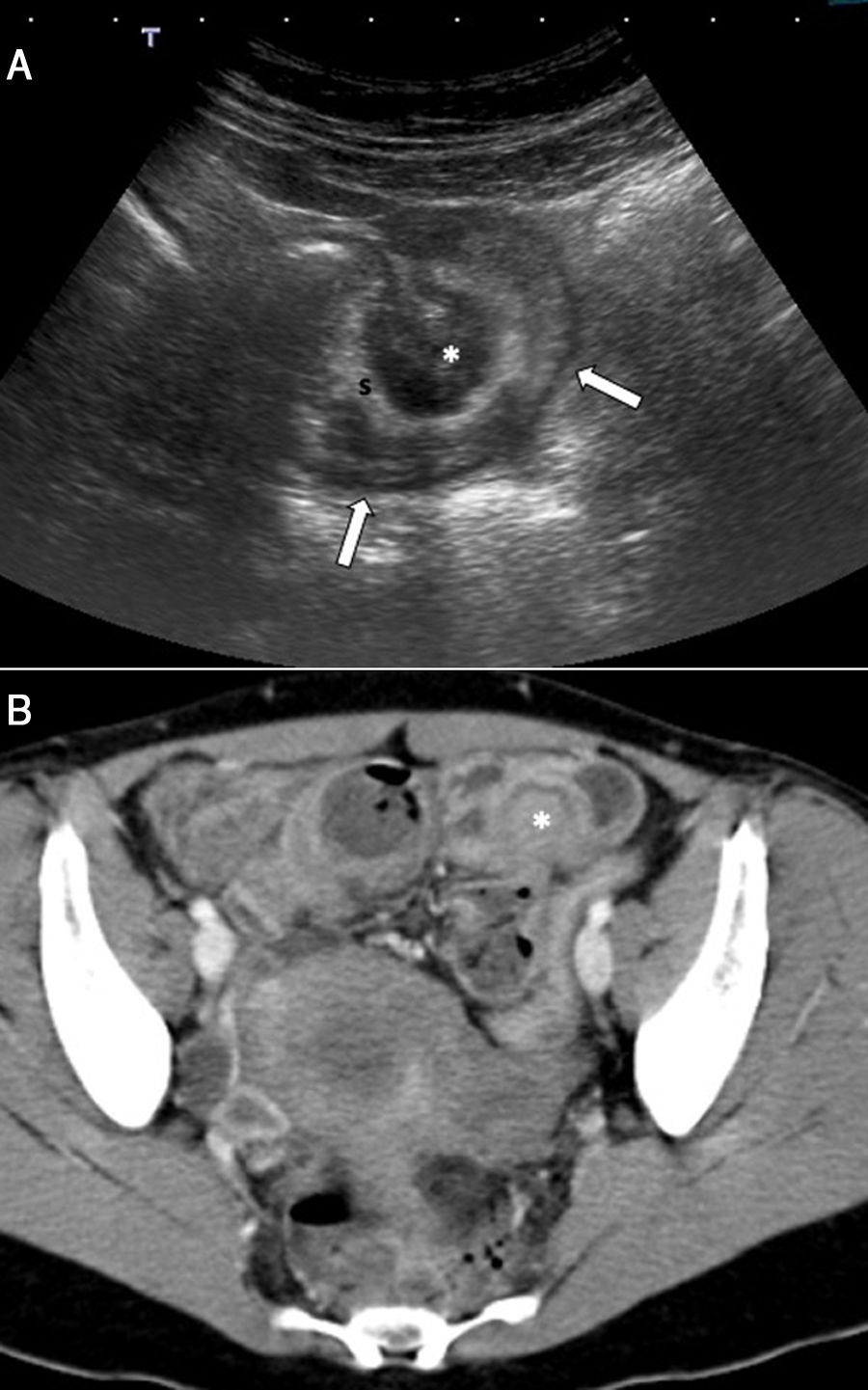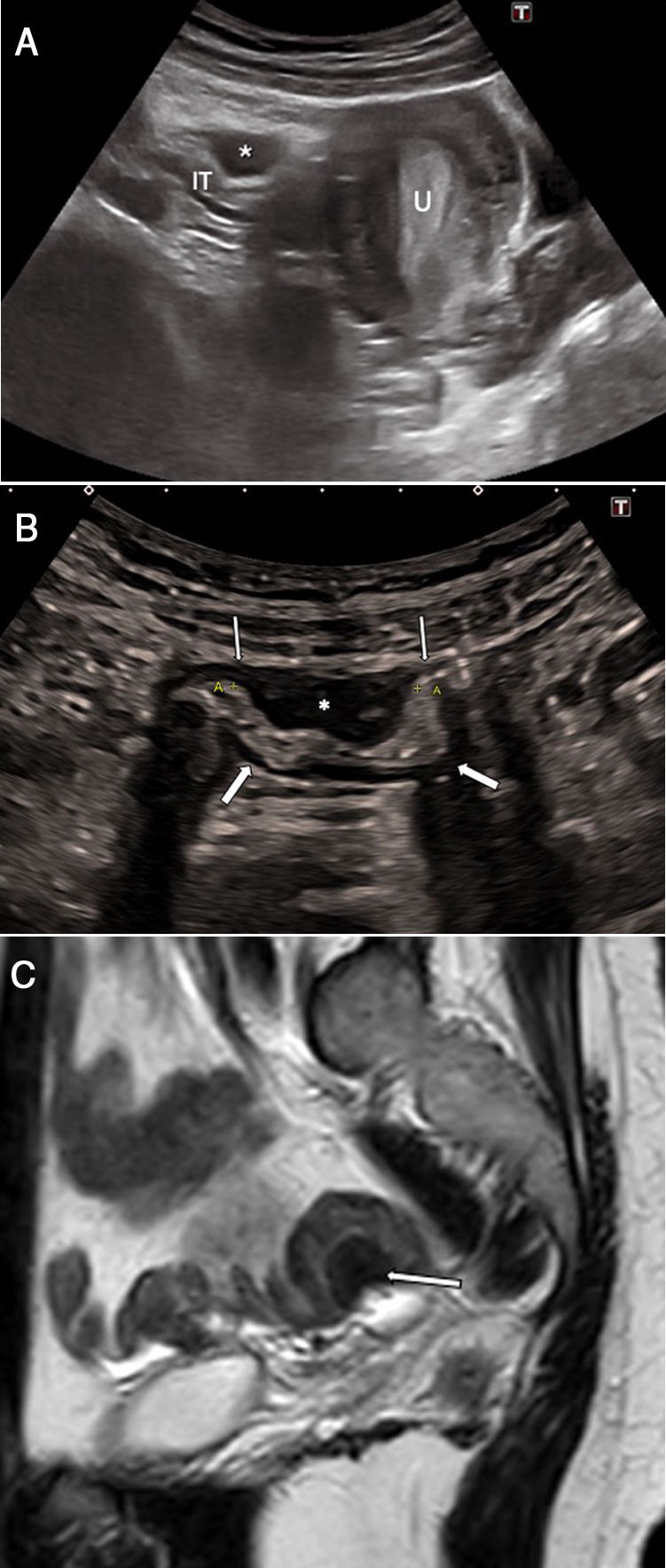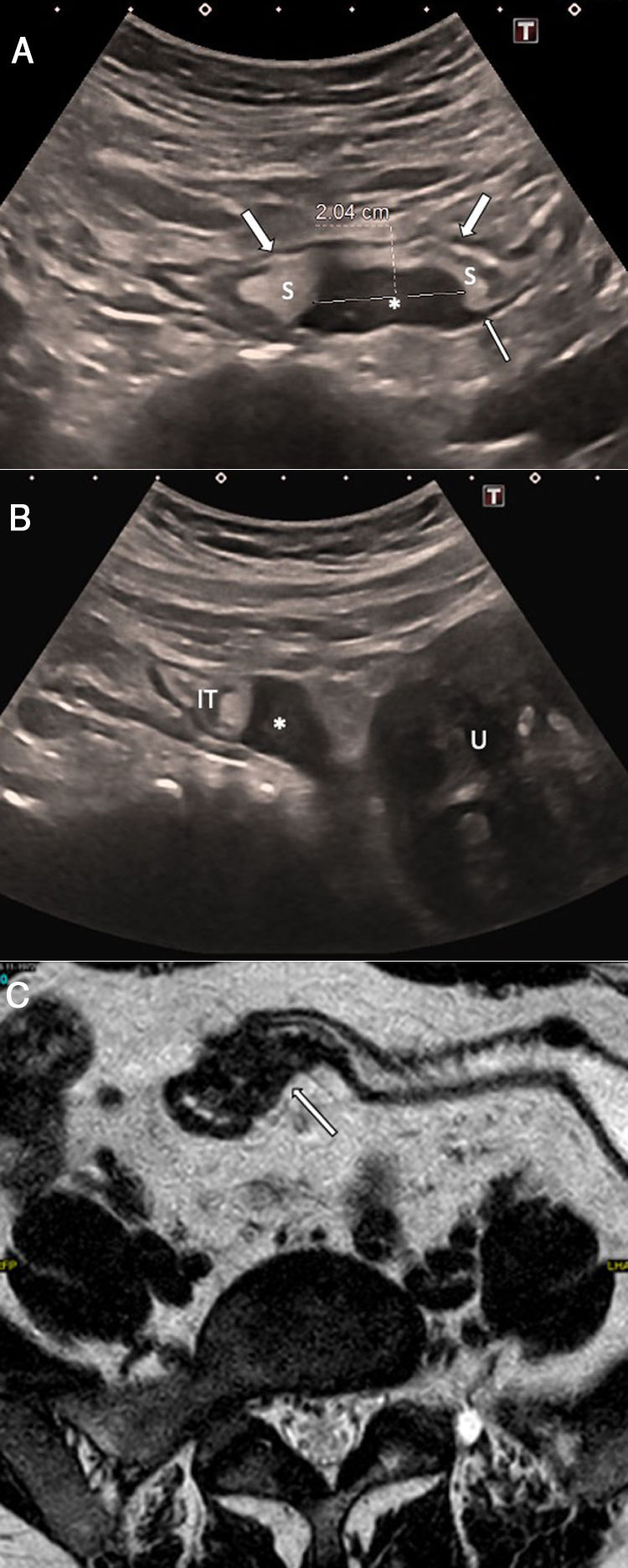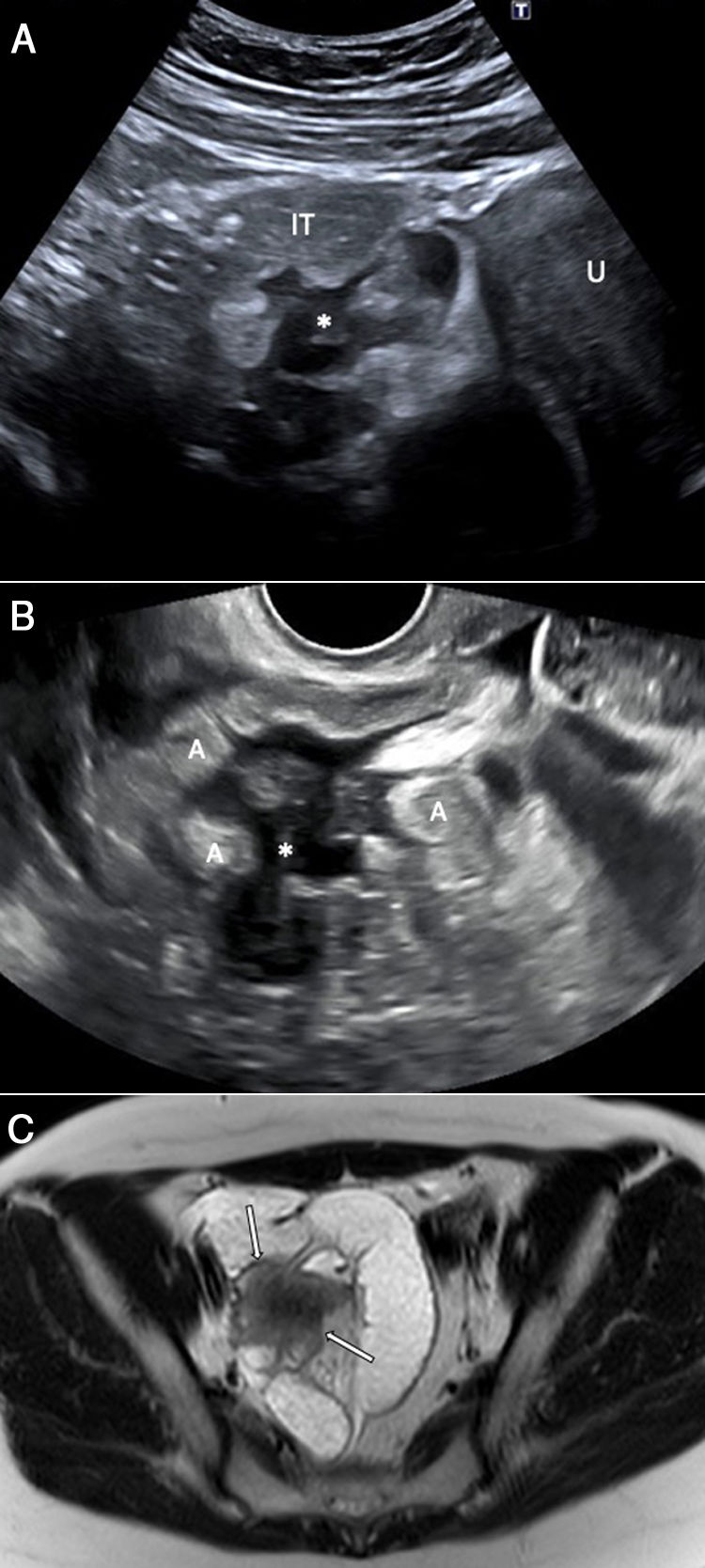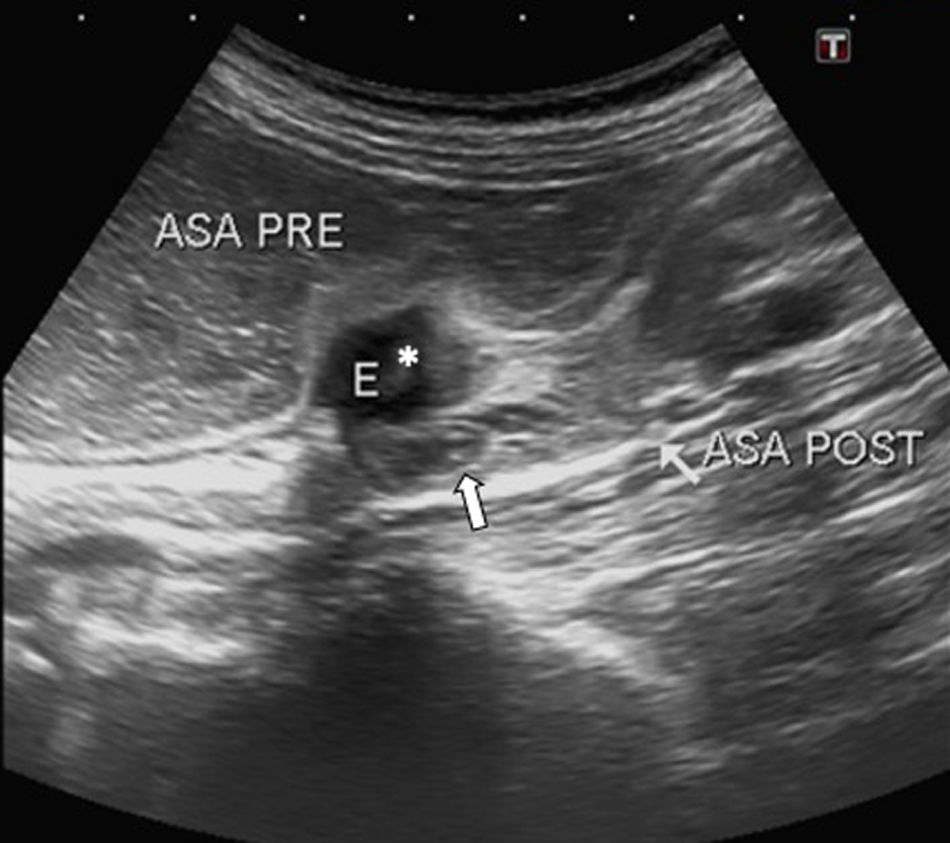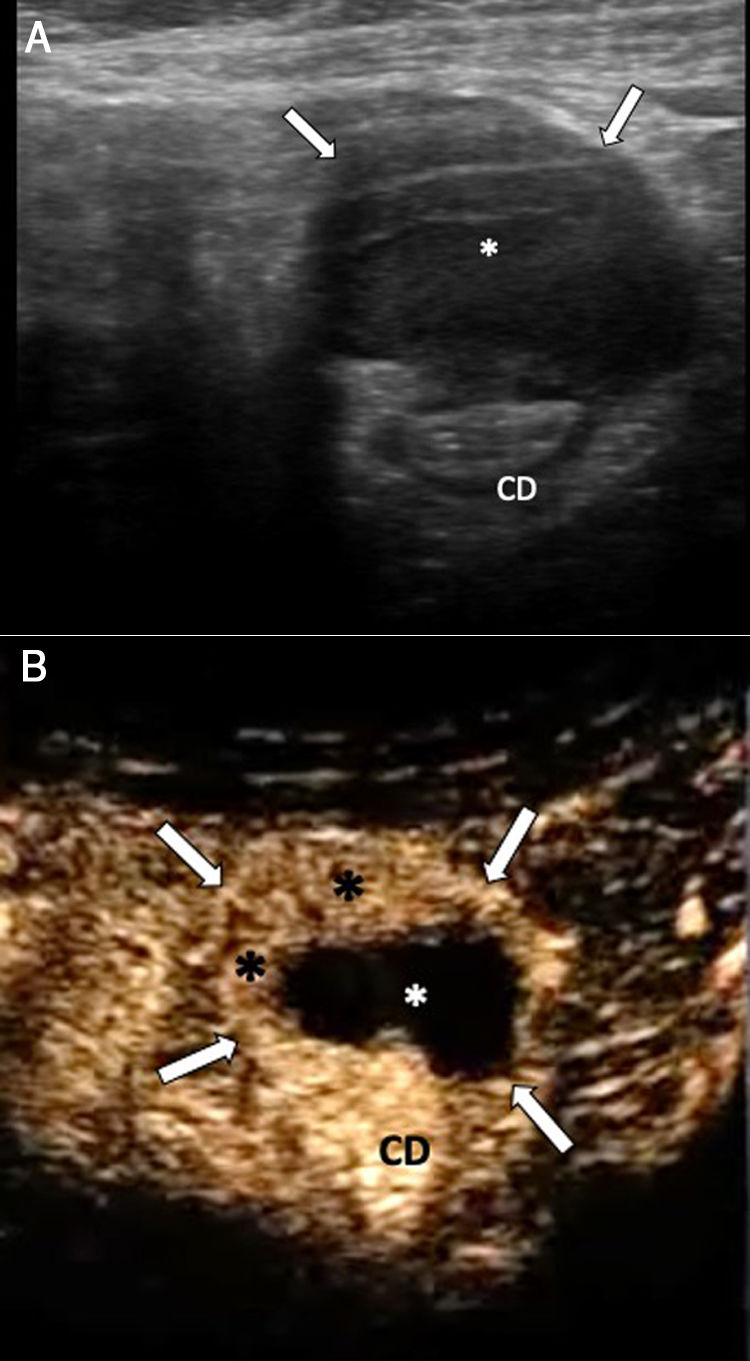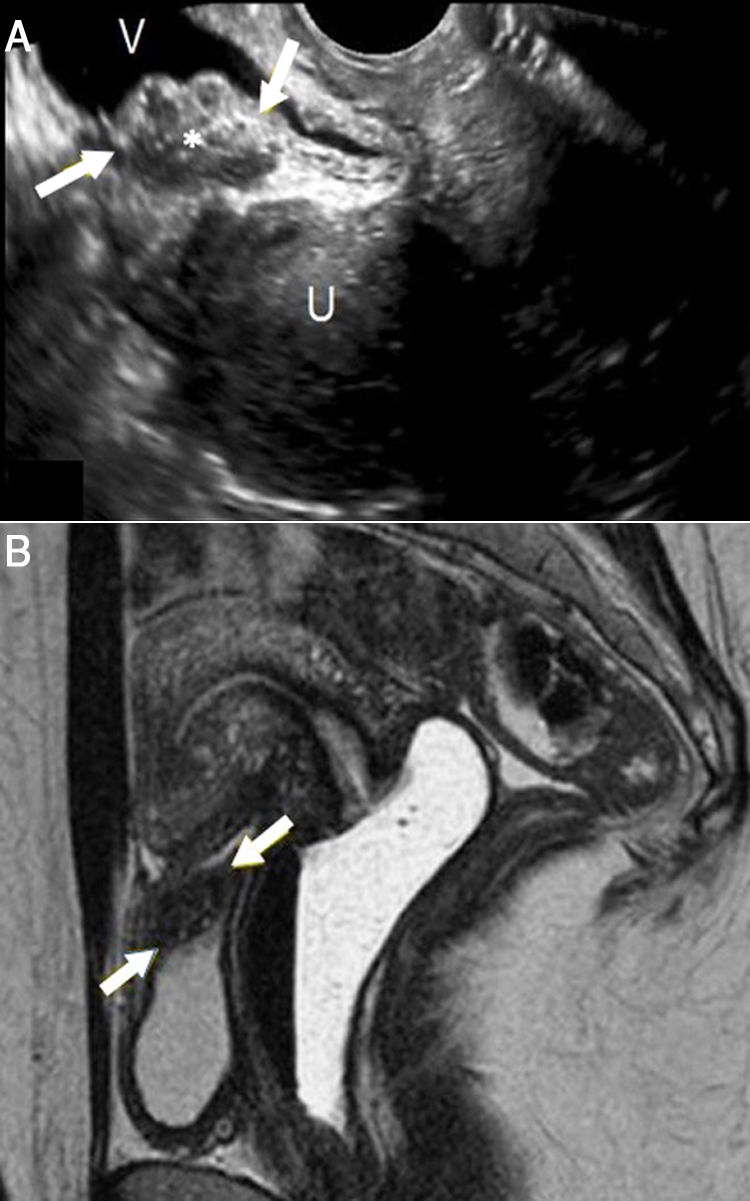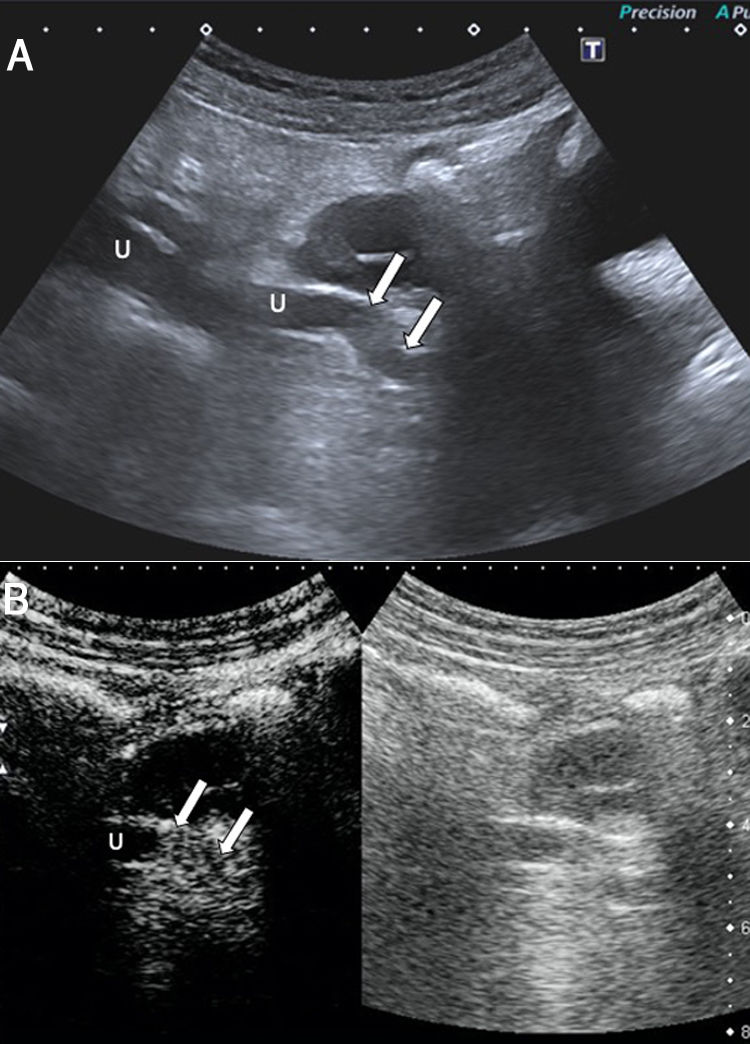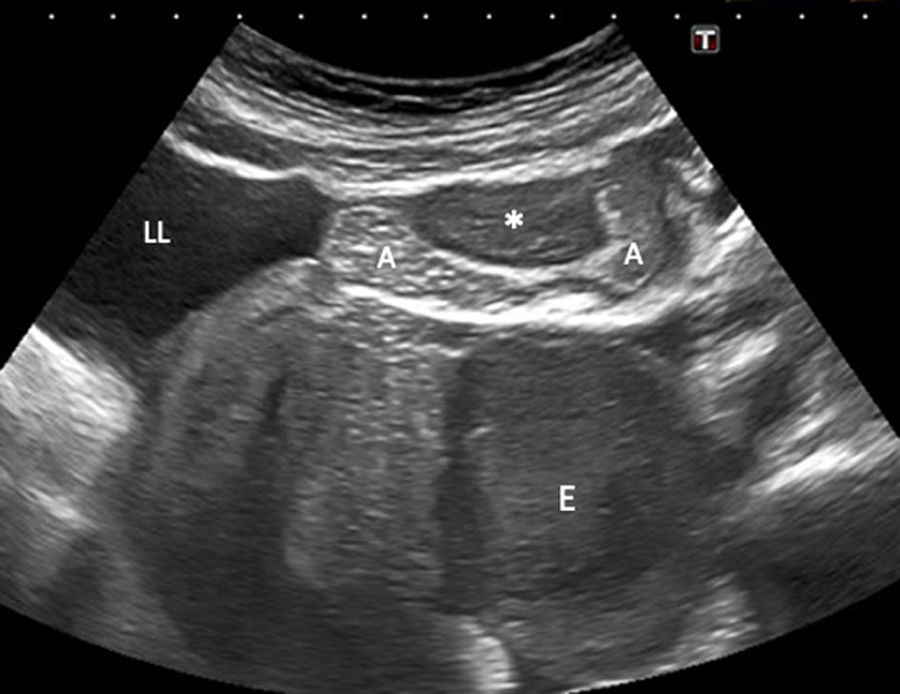Endometriosis is the presence of endometrial tissue outside the uterus. Endometriosis of the bowel and urinary tract are types of extragenital endometriosis that manifest with nonspecific symptoms, but their detection involves specific therapeutic strategies. Although the characteristics of the disease on transvaginal ultrasonography and on magnetic resonance imaging have been described in many publications, few references describe its characteristics on abdominal ultrasonography.
This paper illustrates the findings for infiltrating endometriosis involving the bowel and urinary tract on abdominal ultrasonography and shows the usefulness of this technique for identifying signs of the disease that have been described with other techniques. Knowledge of infiltrating endometriosis and its ultrasonographic features will enable radiologists to suggest its diagnosis and to include it in the differential diagnosis of pelvic pain in women of child-bearing age.
ConclusionAbdominal ultrasonography is a useful tool in the diagnosis of extragenital endometriosis. Familiarity with the ultrasonographic appearance of this entity facilitates the diagnostic orientation and management of patients with pelvic pain.
La endometriosis es la presencia de tejido endometrial fuera del útero. La endometriosis intestinal y del tracto urinario son formas de endometriosis extragenital que se manifiestan con síntomas inespecíficos, pero su detección conlleva estrategias terapéuticas específicas. Las características de la enfermedad se han descrito con ecografía transvaginal y resonancia magnética en numerosas publicaciones, pero existen escasas referencias de ecografía abdominal.
El objetivo de este trabajo es ilustrar los hallazgos ecográficos de la endometriosis infiltrante (intestinal y del tracto urinario) desde el abordaje abdominal y mostrar su utilidad en reconocer signos de la enfermedad previamente descritos con otras técnicas. Conocer la enfermedad y sus características ecográficas permite al radiólogo sugerir su diagnóstico e incluirla en el diagnóstico diferencial del dolor pélvico en mujer en edad fértil.
ConclusiónLa ecografía abdominal constituye una herramienta útil en el diagnóstico de la endometriosis extragenital. La familiarización con sus apariencias ecográficas facilita la orientación y manejo de este tipo de pacientes.











